Returns insist upon some reflection and this return is no different. Half a month upon that route of high along the eastern flank of Mustang, followed up by a half month of Solukhumbu and the wide spaces of Mustang seem simple to conjure.
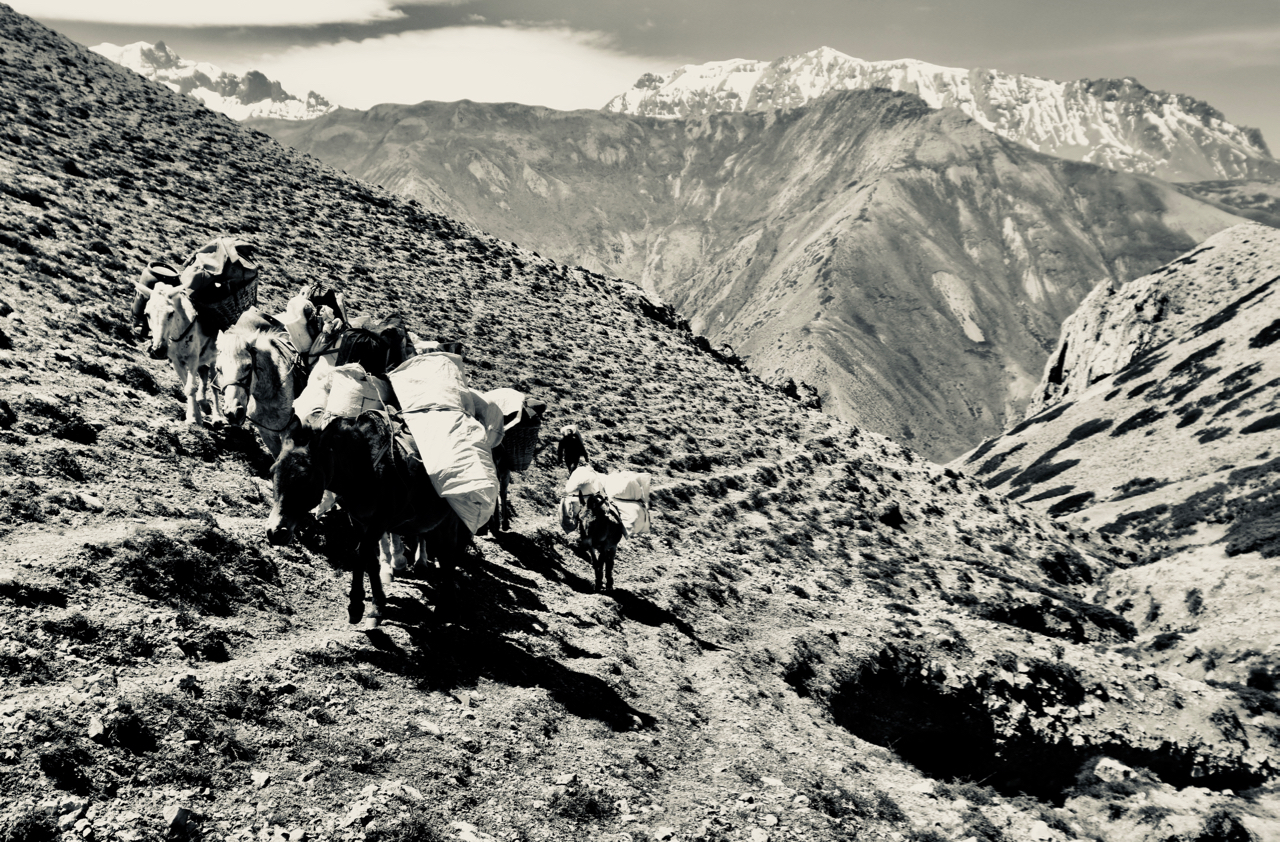
The reassuring view of our mule caravan (and all that it carries)
Mustang’s fate seems to shift all over the orbit but whatever shall be, there is much change in the dust of this formerly independent kingdom. Money comes in to construct (and build atop) the main route which plows through the Kali Gandaki Gorge, though the sources aren’t clear…
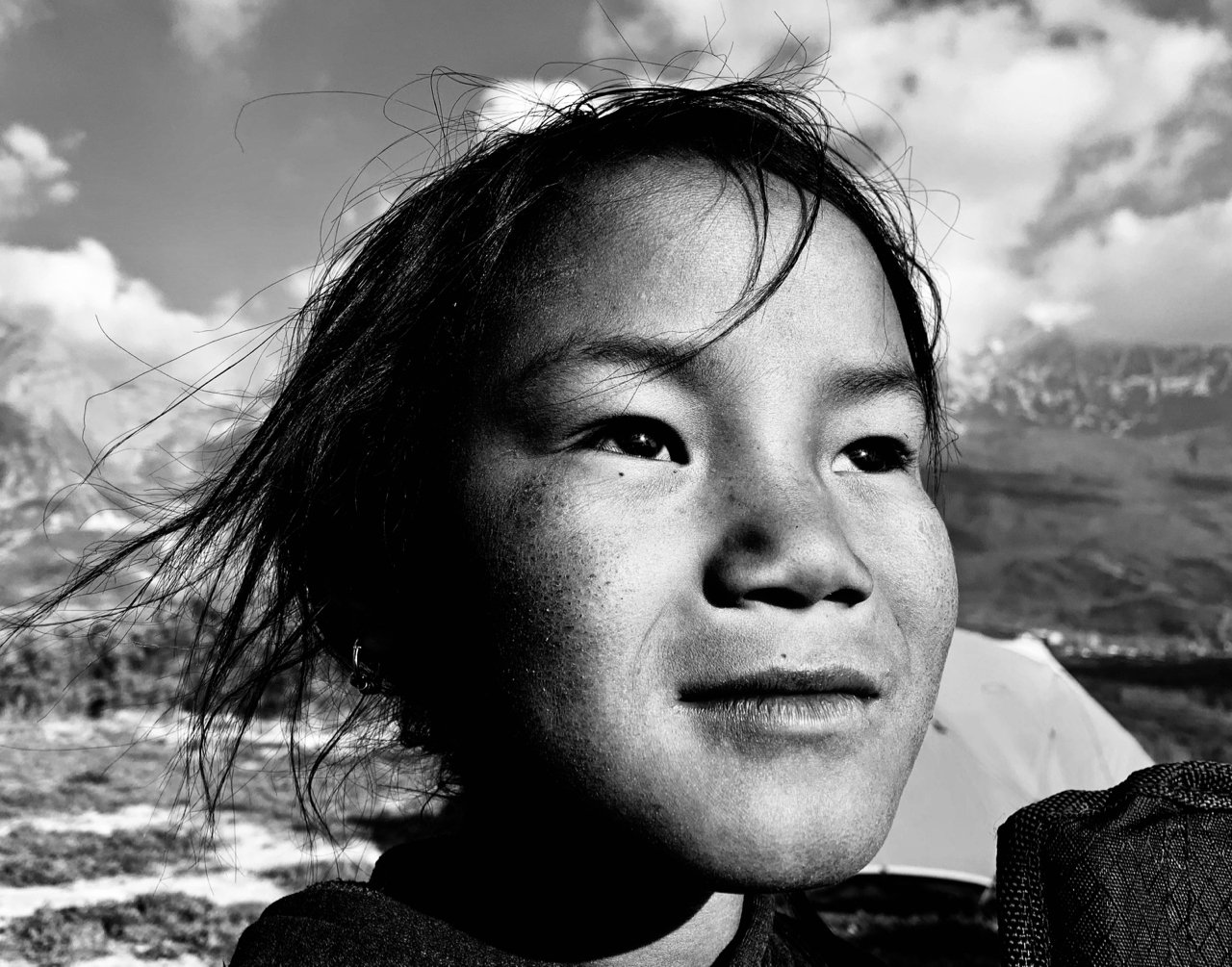
A young Magar girl near the village of Jhong lights up our lives with her fearless strength near our camp site.
Dust, silt, and man machines which belch fumes litter the valley down a thousand metres below us. Jim, Christian, and I head up the eastern flank upon a route that was once the domain of Khampa traders…and hosted Khampa camps and resistance to China’s incursion into Tibet, and though this time was short lived it left marks and memories a plenty in the highlands.
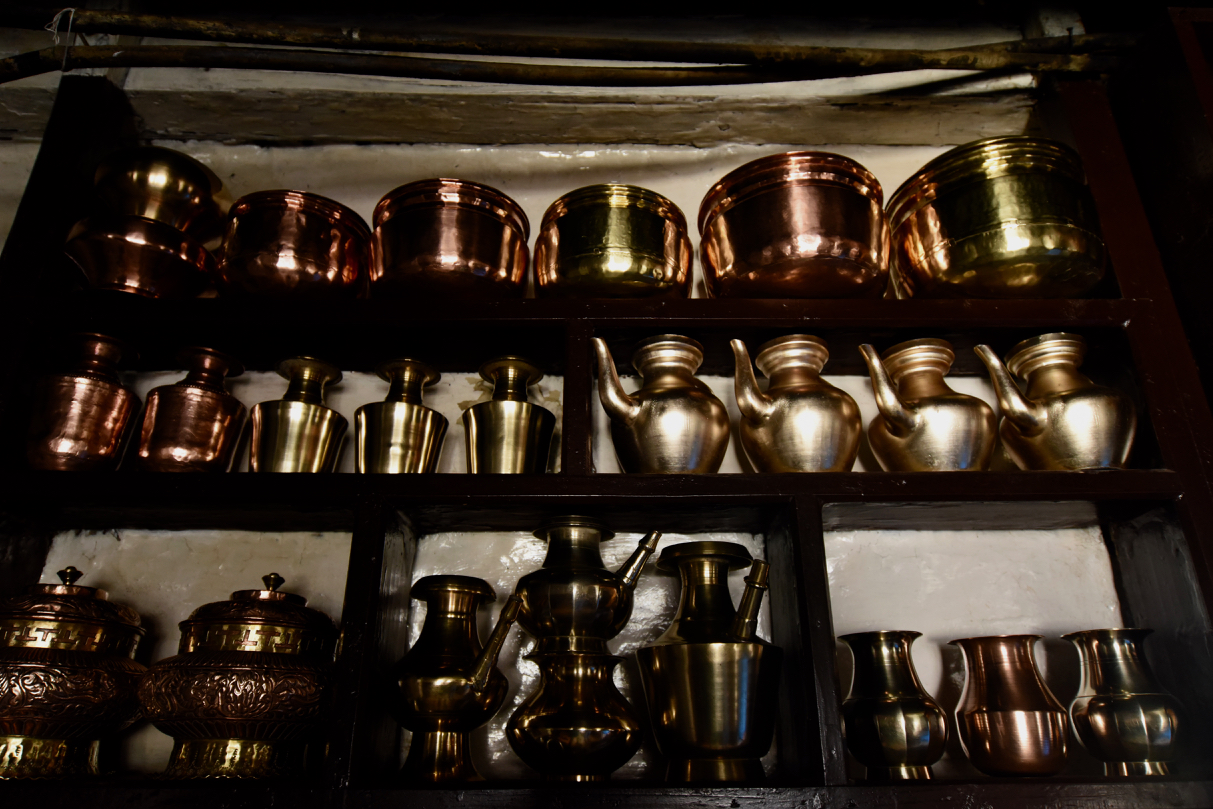
An always reassuring site: a wall of tea paraphernalia in Kagbeni
High and isolated, with pathways that are at times a metre wide, there is wind that comes at intervals that are almost cued, there is the layering of tones and geology, and there are the ammonites that litter valleys hidden encased in river rocks.
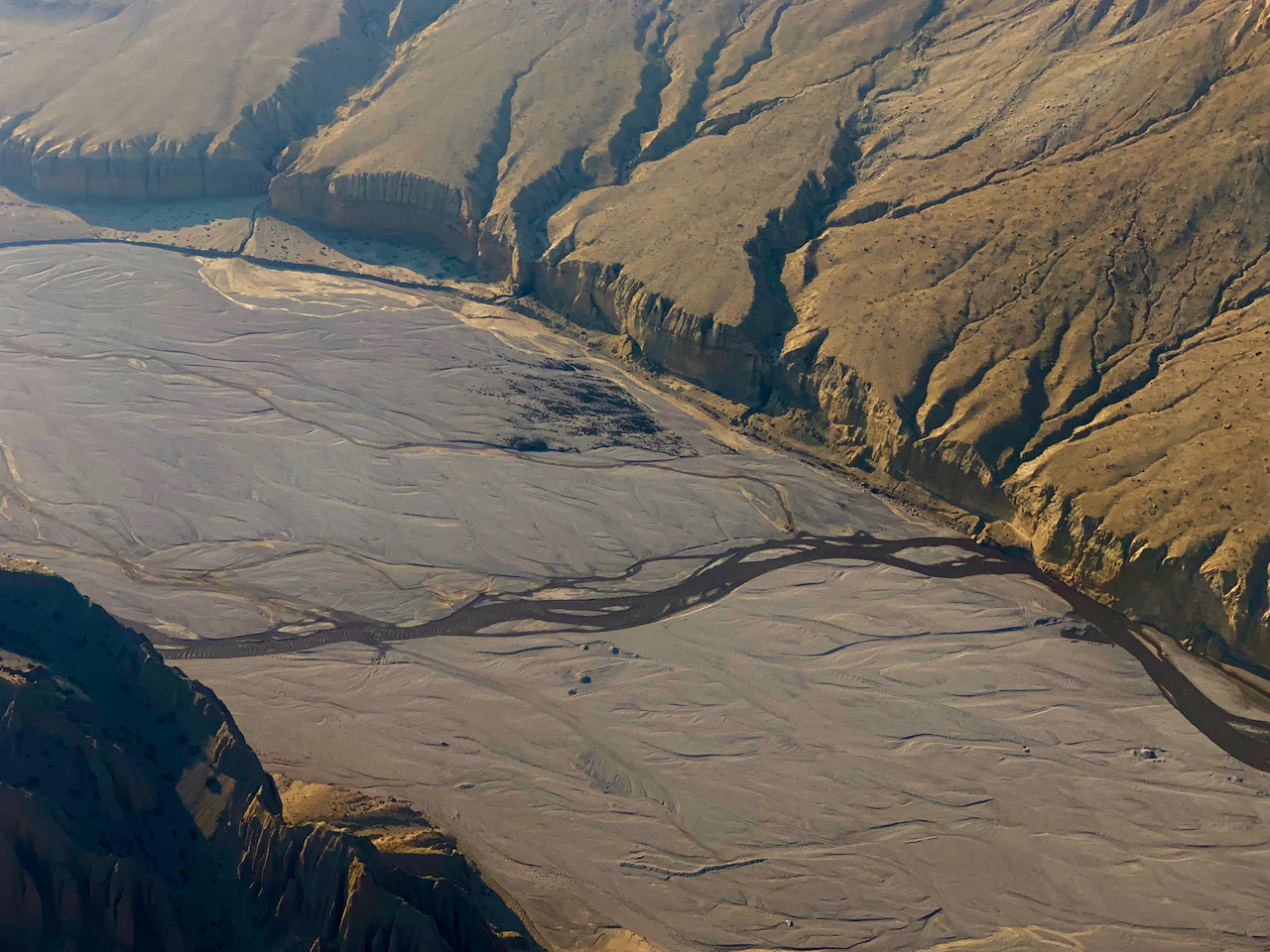
So much above and so much below at these altitudes
Moving through such spaces is like a never ending lesson in geology.
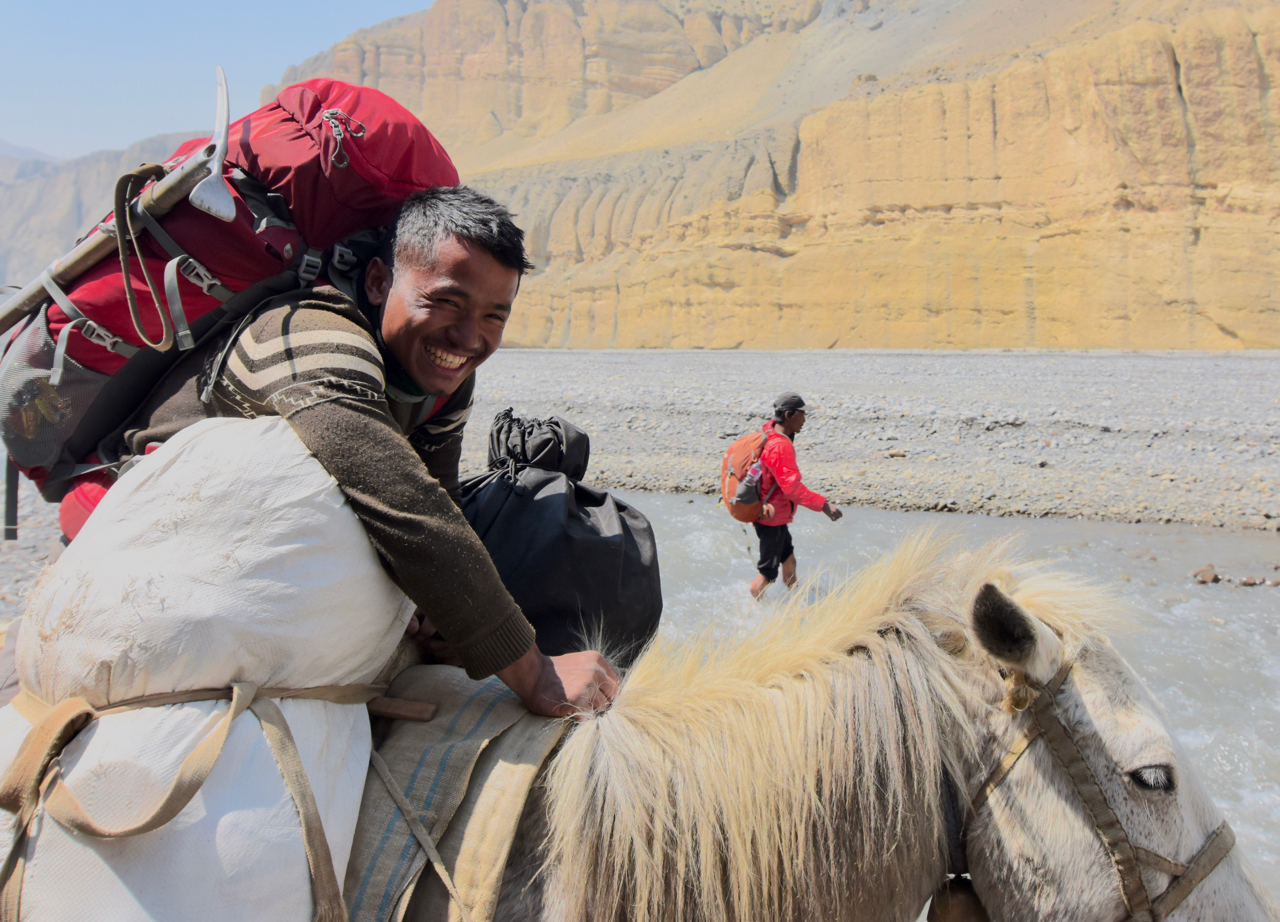
Fun and games as we do successive river crossings
The dominant Sakya lineage and its monasteries lie upon sacred power-zones throughout the Mustang area and the memories of Tantric practice are not long gone at all.

A young monk, the keeper of the key
It is a place that still hums with power and memory.
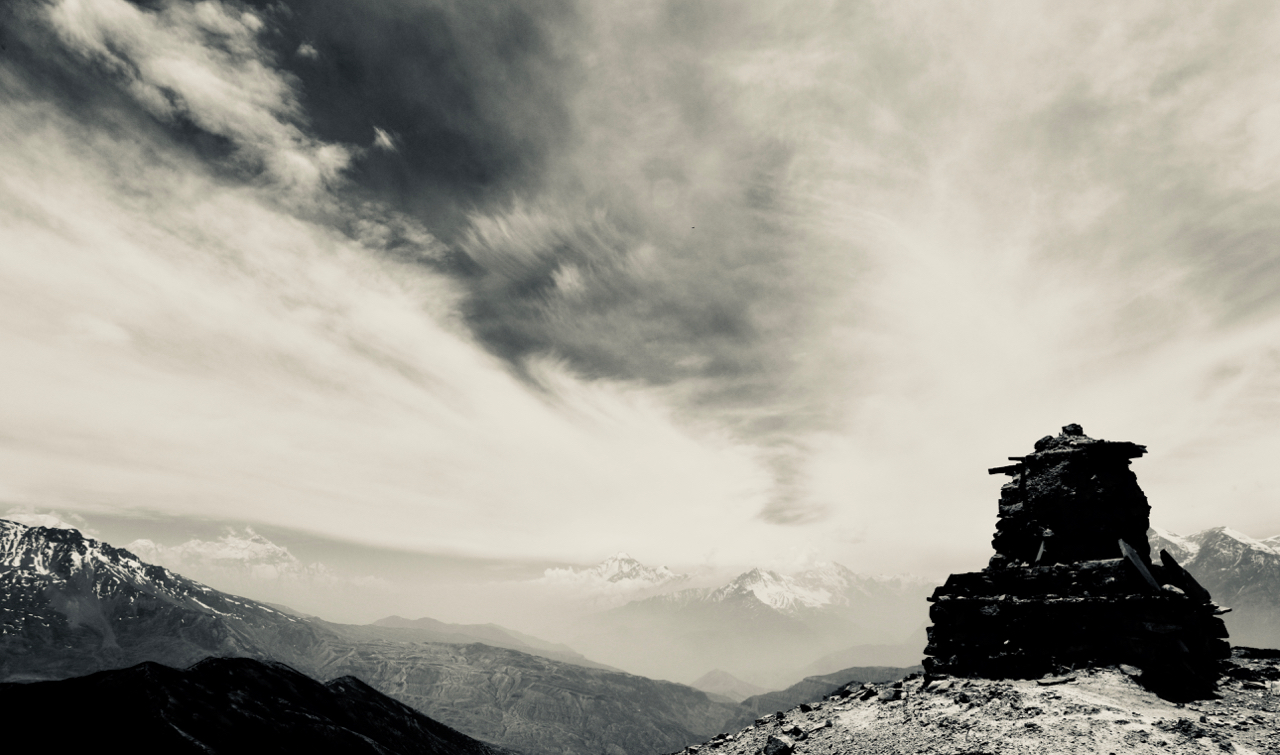
A Chorten marks a pass
Like every year upon this route (thus far) there is too that feeling of being in a world without plastic, without man’s noises but with a kind of autonomy. Such a concept here is accessible and preferred.
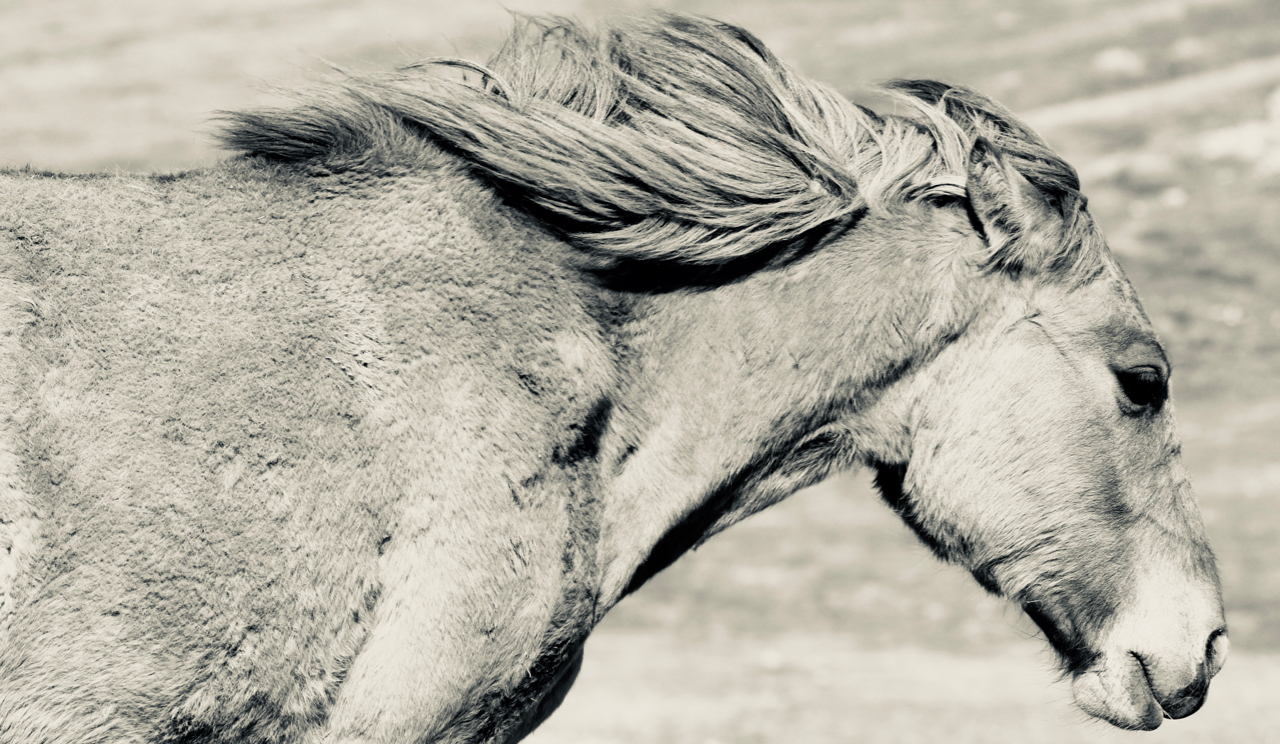
One comes here with all one needs (or with what one thinks one needs) with a team, with mules and with whatever else matters.
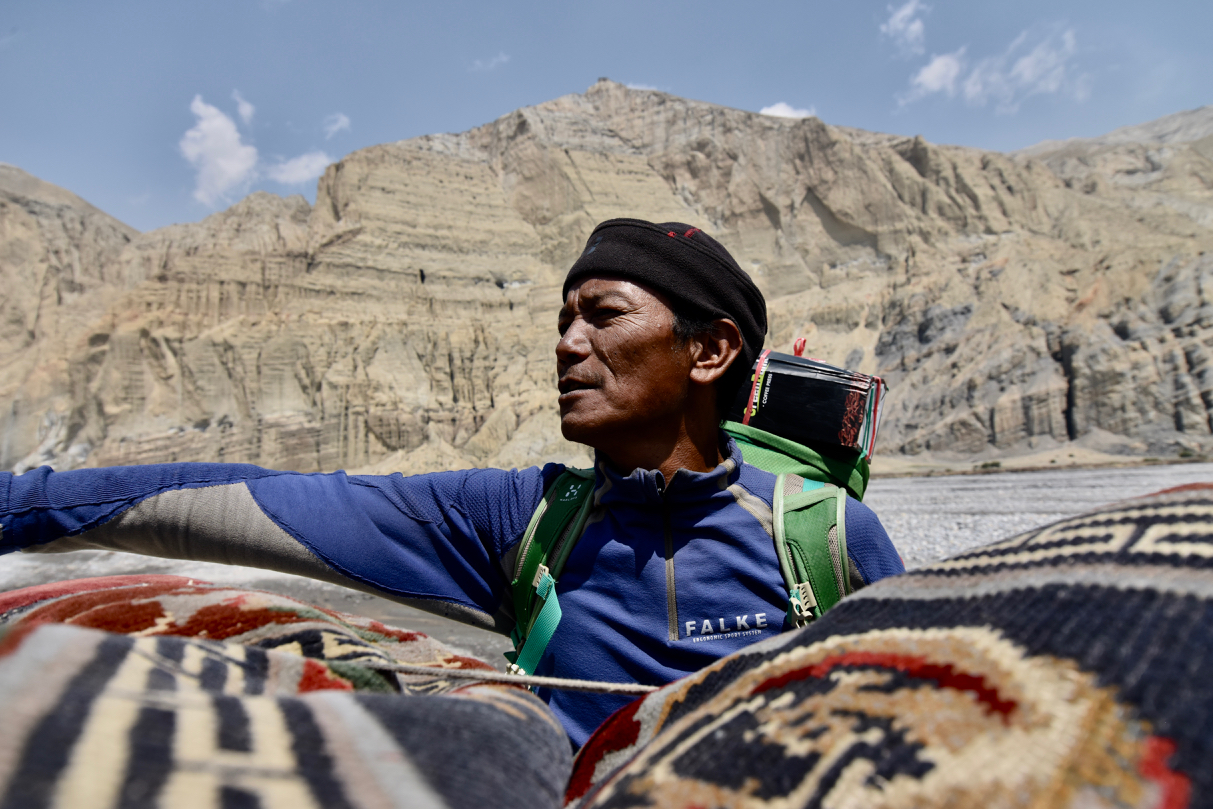
Though Nir wasn’t our official guide, he became (in mere days) our unofficial leader. Throughout the journey he managed to maintain perfect pleats in his trousers! Here he issues out orders and thoughts.
With Jim and Christian, I have dedicates that have chosen to come to a series of spaces that remind that faith, the elements, and a bit of wind is all the mind and body need.
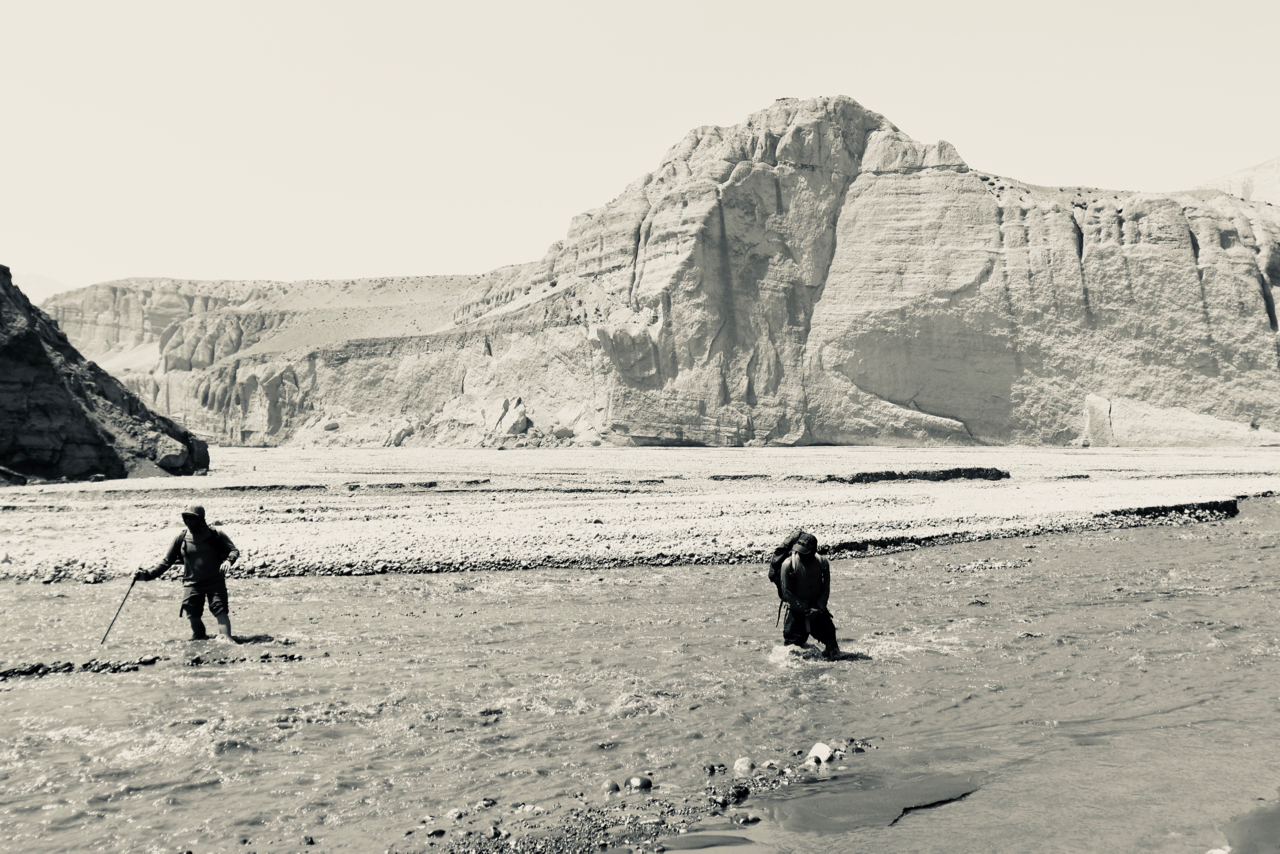
Crossing the ‘Black River’ the Kali Gandaki
We have food, companionship, loads of my tea and a team of Sherpas, Magars, Lo’Ba’s and a chef named Santosh. It is all that is needed.
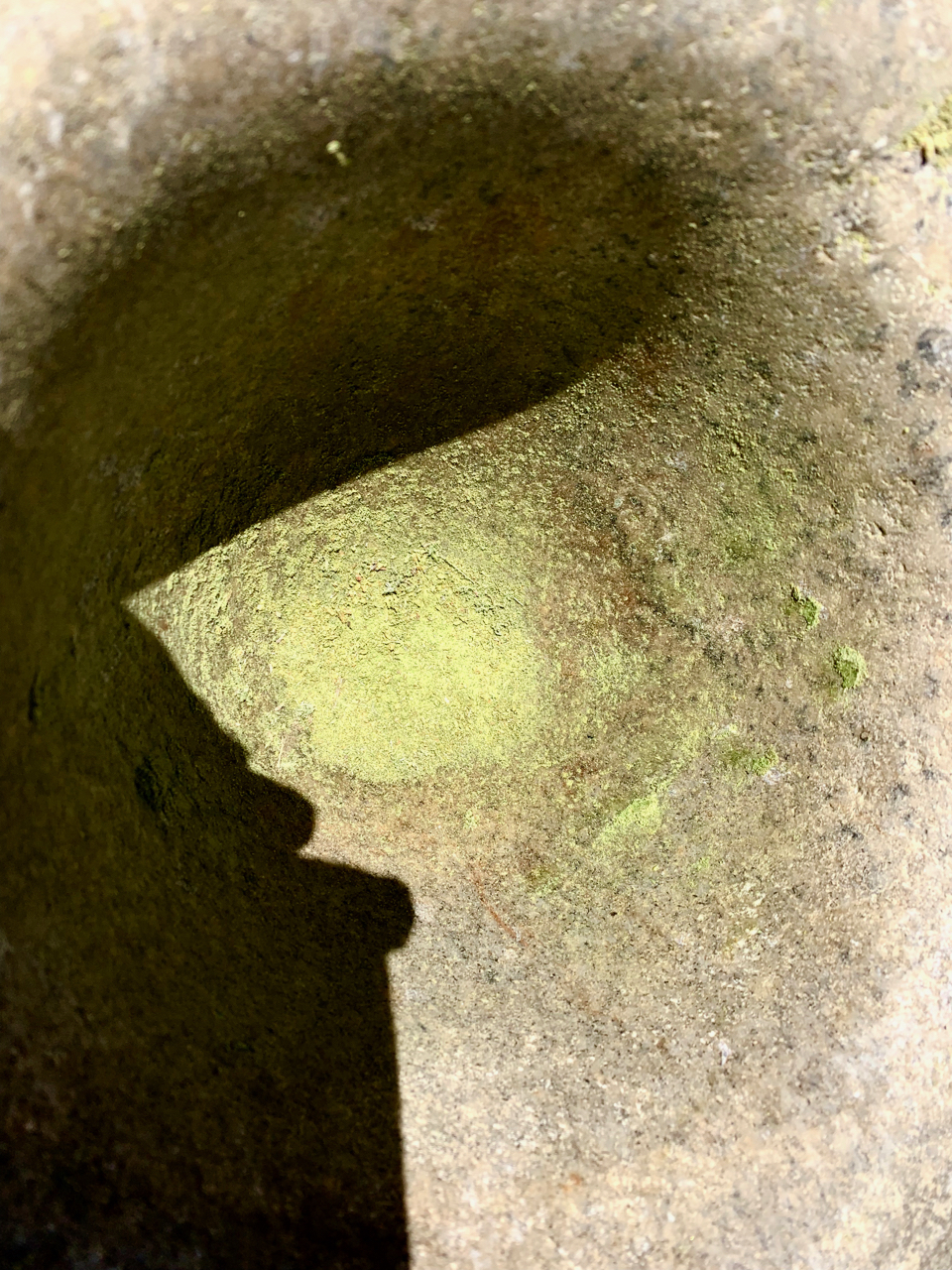
A hollow of stone, long used to pulverize ‘Duba’ (juniper) for incense

About JeffFuchs
Bio
Having lived for most of the past decade in Asia, Fuchs’ work has centered on indigenous mountain cultures, oral histories with an obsessive interest in tea. His photos and stories have appeared on three continents in award-winning publications Kyoto Journal, TRVL, and Outpost Magazine, as well as The Spanish Expedition Society, The Earth, Silkroad Foundation, The China Post Newspaper, The Toronto Star, The South China Morning Post and Traveler amongst others. Various pieces of his work are part of private collections in Europe, North America and Asia and he serves as the Asian Editor at Large for Canada’s award-winning Outpost magazine.
Fuchs is the Wild China Explorer of the Year for 2011 for sustainable exploration of the Himalayan Trade Routes. He recently completed a month long expedition a previously undocumented ancient nomadic salt route at 4,000 metres becoming the first westerner to travel the Tsa’lam ‘salt road’ through Qinghai.
Fuchs has written on indigenous perspectives for UNESCO, and has having consulted for National Geographic. Fuchs is a member of the fabled Explorers Club, which supports sustainable exploration and research.
Jeff has worked with schools and universities, giving talks on both the importance of oral traditions, tea and mountain cultures. He has spoken to the prestigious Spanish Geographic Society in Madrid on culture and trade through the Himalayas and his sold out talk at the Museum of Nature in Canada focused on the enduring importance of oral narratives and the Himalayan trade routes.
His recently released book ‘The Ancient Tea Horse Road’ (Penguin-Viking Publishers) details his 8-month groundbreaking journey traveling and chronicling one of the world’s great trade routes, The Tea Horse Road. Fuchs is the first westerner to have completed the entire route stretching almost six thousand kilometers through the Himalayas a dozen cultures.
He makes his home in ‘Shangrila’, northwestern Yunnan upon the eastern extension of the Himalayan range where tea and mountains abound; and where he leads expeditions the award winning ‘Tea Horse Road Journey’ with Wild China along portions of the Ancient Tea Horse Road.
To keep fueled up for life Fuchs co-founded JalamTeas which keeps him deep in the green while high in the hills.











